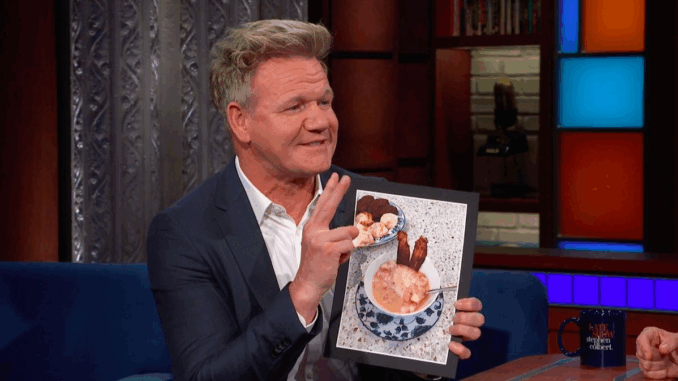
When the cameras rolled into Bella Luna — a beloved Italian bistro nestled in the heart of New Jersey — the owners were hopeful. Business had slowed, yes, but they believed a dose of Gordon Ramsay’s fiery expertise could save their dream. Instead, it became their downfall.
The episode aired to millions. Viewers saw Gordon march in, taste the food, scowl in horror, and declare, “This is garbage!” He revamped the menu, redesigned the interior, and rebranded the restaurant — all in a matter of days. By the end of the episode, the staff was teary-eyed, the customers applauded, and Ramsay drove off triumphantly.
But what happened after the cameras stopped rolling shocked everyone.
Within six months, Bella Luna was gone.
“We were set up,” said Maria Esposito, co-owner of the now-shuttered restaurant. “What aired was a version of us that was edited for drama — not reality.”
According to Maria, the changes Ramsay implemented were “unsustainable” for their community. “We had regulars who loved our old menu. When they came back, everything was gone — no more lasagna, no more Sunday sauce. It felt like we were strangers in our own place.”
Worse, she claims the renovations weren’t built to last. “The kitchen upgrades looked great on TV, but the equipment started breaking within weeks. The decor was rushed. It looked beautiful, but it wasn’t functional.”
Online backlash didn’t help either. Fans of the show flooded review sites, some mocking the staff, others criticizing the pre-makeover food that Ramsay had publicly trashed. “It was like a digital smear campaign we couldn’t control,” said co-owner Daniel Vento. “We lost half our bookings in the first two months after the episode aired.”
They tried to recover by bringing back their original dishes, but by then, the damage was done. Loyal customers had moved on, and new patrons came expecting Ramsay-level gourmet — something Bella Luna, a small family-run business, was never built to deliver.

In a heartbreaking Facebook post shared weeks before the closure, Maria wrote: “We invited help. What we got was a spectacle. Bella Luna wasn’t broken — it was bullied.”
Gordon Ramsay, when later asked about failed post-show restaurants, shrugged off the responsibility. “You can’t fix lazy,” he said in a radio interview. “We give them the tools. If they can’t use them, that’s not my problem.”
But for the Espositos, it wasn’t laziness — it was survival. “We had a loyal base and a business that paid our bills,” Maria said. “Now we have debt, depression, and a building we had to sell.”
Today, the former Bella Luna site is a fast-casual chain. The painted sign, once lovingly handcrafted by Maria’s father, has been torn down.
What remains is a hard lesson for small restaurant owners: sometimes, help that comes with bright lights and big names costs more than anyone can afford.
And in Maria’s words, “If I could go back, I’d never open that door for the cameras. It was the worst decision of my life.”